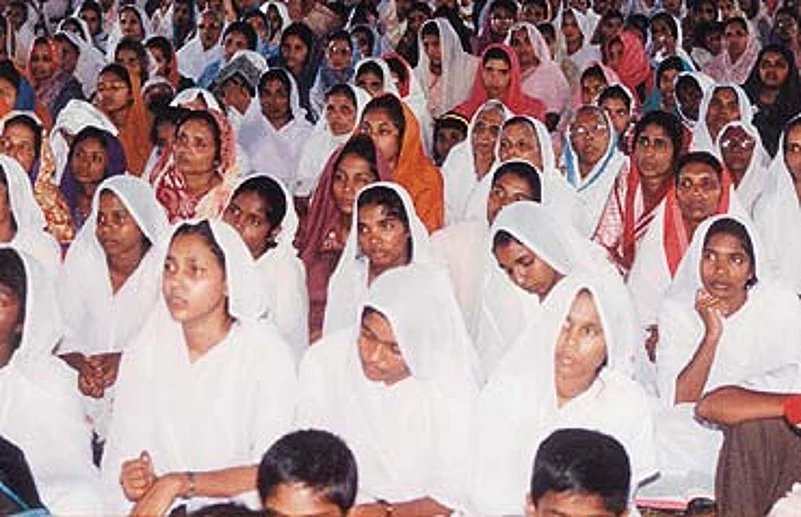- No Christian fellowship in churches
- Decreasing exposure to scriptures
- The church does not offer personalised evangelism
- Mass, sacraments, sermons and printed prayers don't appeal to many
- The clergy lives in a different world. Their mantra: obey, pay and pray.
***

But the gimmick seems to be working. Be it in coastal Poonthura in the Thiruvananthapuram district or Chattanchal in Uduma in Muslim-dominated northern Kasargod district, Protestant Pentecostals are setting up evangelist outposts. The Indian Pentecostal Church of God and the Assemblies of God, which the Vatican may reckon as "groups"—not churches—are growing. Eapen Thomas, the treasurer of the Indian Pentecostal Church of God, says they have about 2,500 small and big churches in Kerala.
Apart from established Pentecostal churches, the most proliferating are independent fellowship groups that regularly congregate at homes. Its members are unhappy with mainline churches but not fully integrated with the Pentecostal establishment. One such group is the Heavenly Feast, which is popular among neoconverts from Catholicism since it permits members to wear jewellery unlike the more austere Pentecostals.
But the Pentecostal progress has had its repercussions. The Hindutva brigade, which finds the Pentecostal streetcorner hallelujahs and barbs on Hindu gods offensive, have often retaliated. Joseph William Cooper, a bishop in the New Jerusalem Universal Church, a Pentecostal fellowship with its headquarters in Marietta, Ohio, was attacked and injured during a ministry near Thiruvananthapuram in January '03. Such was his zeal that Cooper told Ohio newspapers that his hand was "healing nicely" from the machete cut he received in Kerala and "if the Lord wants him to return, he'll still go back" to India.
So, where does the established church go from here? There are many who feel that the trend of desertion is just a passing phase and that the misguided flock will soon return. But certainly the Church needs to do some rethinking. As Prof Jacob Chandy, a Protestant with the Church of South India, puts it, "The clergy are old-fashioned and uneducated when compared with the congregation. The laity no more vibe with the clergy, who live in a different world, uttering the same old prayers. Their prescription to the faithful is—obey, pay and pray!"






















